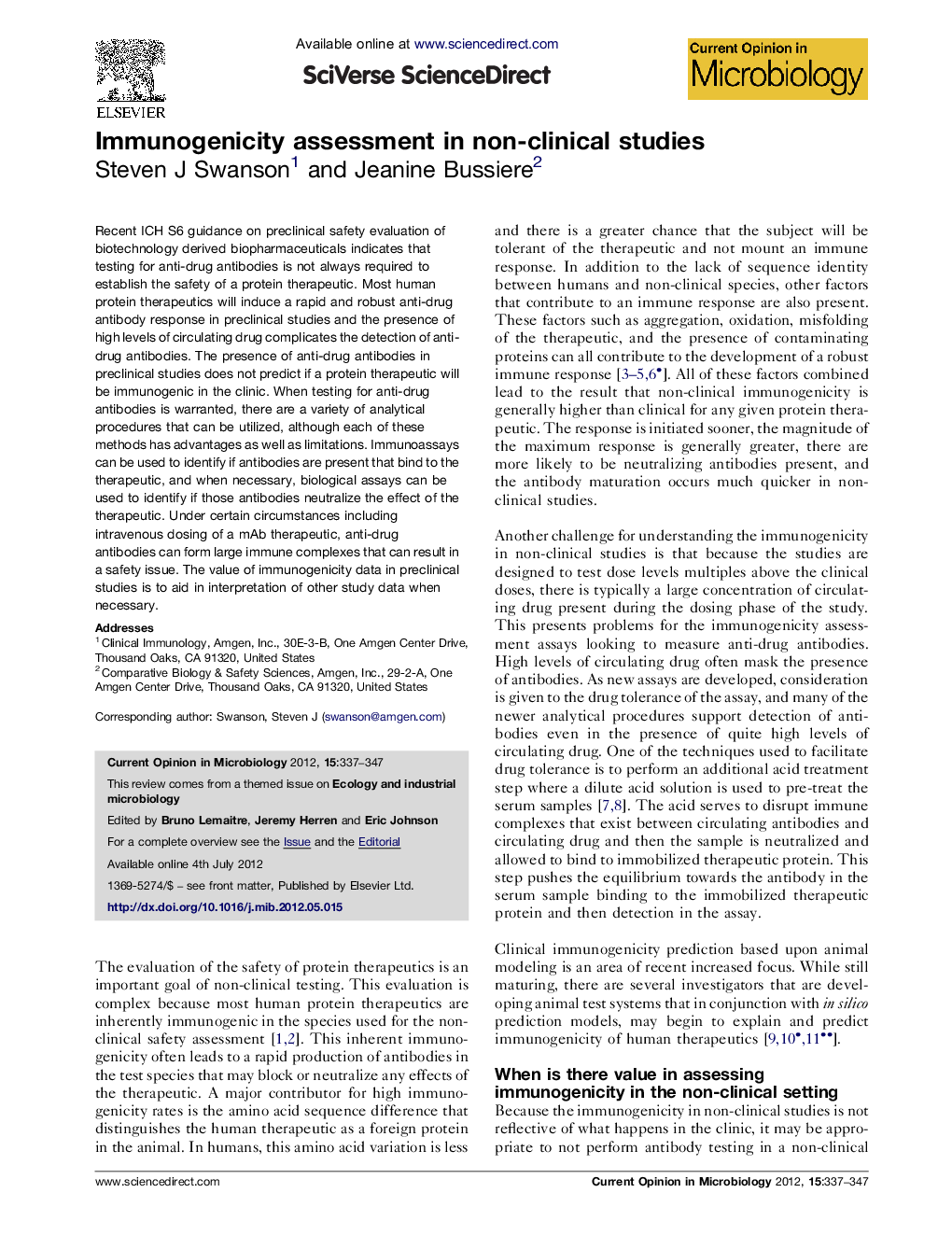| Article ID | Journal | Published Year | Pages | File Type |
|---|---|---|---|---|
| 3399264 | Current Opinion in Microbiology | 2012 | 11 Pages |
Recent ICH S6 guidance on preclinical safety evaluation of biotechnology derived biopharmaceuticals indicates that testing for anti-drug antibodies is not always required to establish the safety of a protein therapeutic. Most human protein therapeutics will induce a rapid and robust anti-drug antibody response in preclinical studies and the presence of high levels of circulating drug complicates the detection of anti-drug antibodies. The presence of anti-drug antibodies in preclinical studies does not predict if a protein therapeutic will be immunogenic in the clinic. When testing for anti-drug antibodies is warranted, there are a variety of analytical procedures that can be utilized, although each of these methods has advantages as well as limitations. Immunoassays can be used to identify if antibodies are present that bind to the therapeutic, and when necessary, biological assays can be used to identify if those antibodies neutralize the effect of the therapeutic. Under certain circumstances including intravenous dosing of a mAb therapeutic, anti-drug antibodies can form large immune complexes that can result in a safety issue. The value of immunogenicity data in preclinical studies is to aid in interpretation of other study data when necessary.
► The value of determining non-clinical immunogenicity is described. ► Methods for detecting immunogenicity are compared. ► A strategy for non-clinical immunogenicity assessment is presented.
